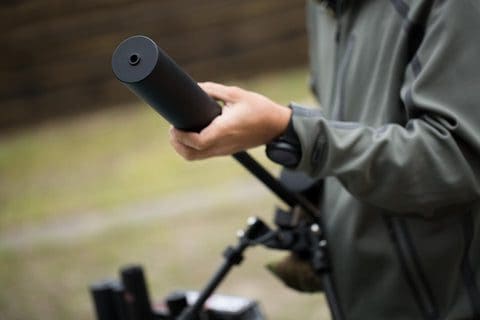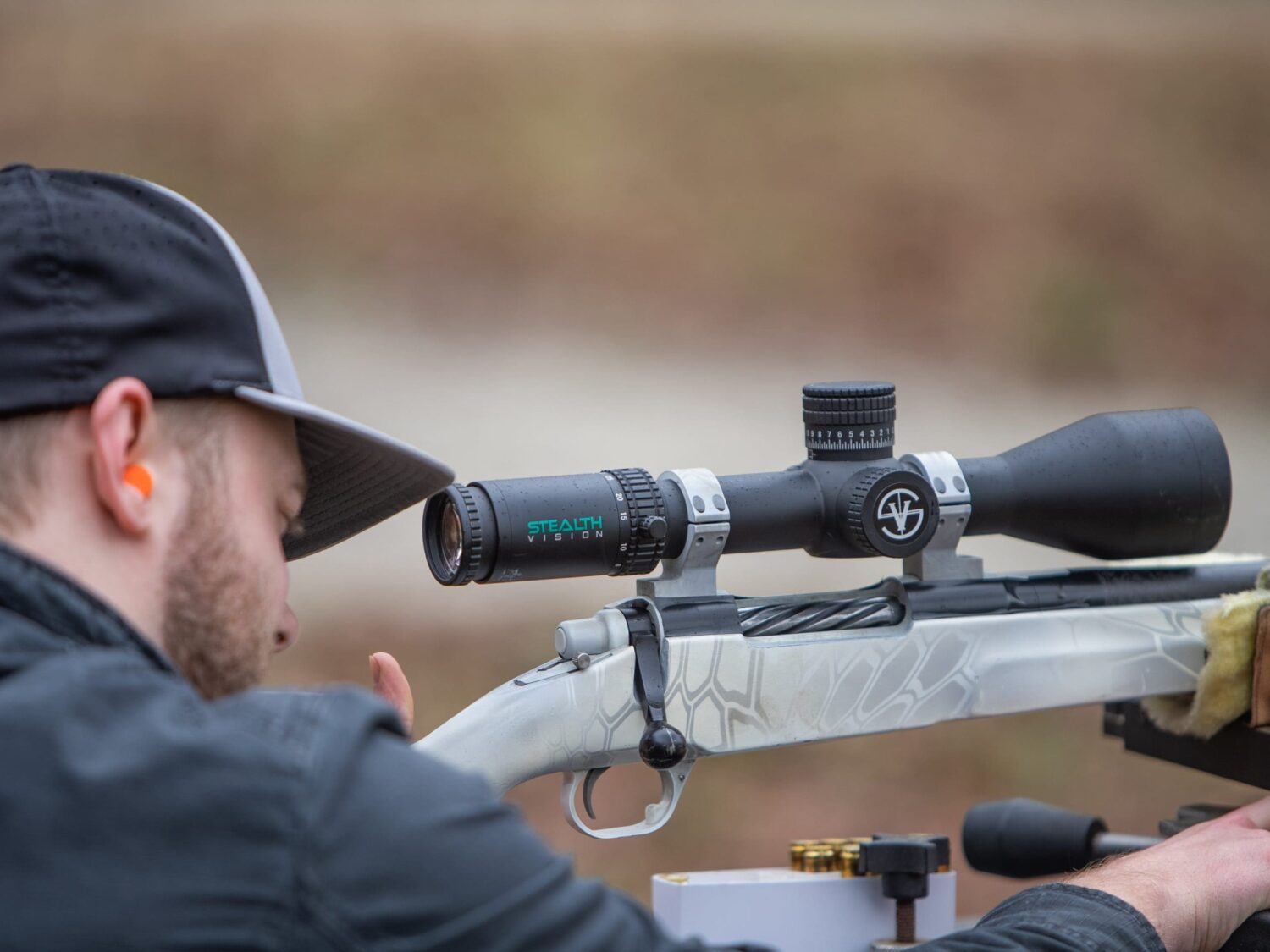News
Hearing Protection for Hunting
Noise levels exceeding 140 decibels can forever damage your hearing. And, almost all firearms generate noise in that range or higher.
Do you know what that means?
It implies that to prevent noise-induced hearing loss, you must use ear protection whenever you’re on the shooting range or hunting ground.
As important as it is, many hunters and shooters don’t use hearing protection. The most common excuse is that wearing a device to protect your ears compromises situational awareness. On top of that, some shooters say earplugs are uncomfortable.
Still, noise protection is essential, which brings us to our next point.
The Importance of Hearing Protection
Let’s crunch some numbers to understand hearing loss caused by shooting firearms.
A single blast from a 12-gauge shotgun at close range generates 165 decibels. That’s louder than a jet engine at 100 feet, rated at 140 decibels or a loud rock concert (115 dB).
Even with hearing protection, the loudest recommended noise exposure is 140 decibels and 125 decibels with naked ears.
A single gunshot at 165 dB can cause permanent hearing loss, even with short-term exposure.
The Hunter’s Ear
Also referred to as a shooter’s ear, this condition leads to asymmetrical hearing loss caused by how your ears are exposed to gunshot noise.
The ear facing the muzzle blast bears the full brunt of the noise, ranging from 157 dB to 165 dB and above.
Asymmetrical hearing loss is caused by a phenomenon known as ear or head shadow. The head serves as a buffer for the non-dominant ear, providing 15 dB “shadow”, reducing the damage caused to the ear facing away from the gun muzzle.
Still, even with the head shadow protection, it’s easy for the hearing damage caused by loud noises to build over time.
That said, below are the symptoms of noise-induced hearing loss.
- Ambient noise becomes muffled or distorted.
- A normal conversation becomes difficult to hear or understand
- Buzzing, ringing, roaring, and tinnitus in the years
- Temporary hearing loss that can last anywhere between 16 to 48 hours
Further, hearing impairment is connected to the following:
- Depression
- Cardiovascular diseases
- Body balance problems, including frequent falls
- Social withdrawal and isolation
- Cognitive decline
The Shortcomings of the Traditional Hearing Protection for Hunting
Sure, traditional hearing protection is crucial. However, has a few downsides, including:
It Makes it Hard to Communicate
For starters, traditional hearing protection is available in the form of ear plugs and muffs.
If you’ve ever worn these to protect your hearing, you know how difficult it can be to communicate with other shooters or hunters.
Indeed, there has been a tremendous improvement in electronic hearing protection over the years.
Some ear muffs, for instance, claim to improve hearing by amplifying sound to comfortable levels. Further, these ear muffs shut off the external mics when they detect dangerous noise levels.
While such hearing protection sounds ideal for communication in the hunting field, these ear muffs are powered by AAA batteries.
So, when the battery runs low, the ear muffs’ functionality is significantly affected, rendering them useless for an extended hunting trip.
It Lowers Situation Awareness
Protecting your hearing using over-the-ear, and in-the-ear gear can compromise situational hunting, a crucial element of game hunting.
Apart from losing the ability to hear the game, you also miss essential verbal cues from the surrounding, exposing yourself and the hunting party to danger.
Compromises situational awareness can be fatal in a hunting ground infested with dangerous wild animals such as mountain lions, wolves, bears and snakes.
Besides, you can miss noises from dangers such as trains, vehicles and gunshots from other hunters.
It Is Uncomfortable
Ear muffs and ear plugs don’t offer comfortable ear protection.
Besides, hunting ear protectors inserted into your ear canal can be painful and disease-causing. On top of that, such hearing aids can cause dangerous ear wax compression. Plus, the ear plugs can fall off easily.
What’s more, over-ear protectors and muffs can affect shouldering a long gun such as a shotgun or rifle. In addition, muffs can be dislodged or become ineffective when you need them to protect your ears.
So, What’s The Best Hearing Protection for Hunters?

A firearm silencer is the best hearing protection for hunters and shooters.
Also referred to as mufflers or rifle suppressors, these devices reduce loud sounds and are relatively safe.
Here’s why suppressors are better than traditional ear protection.
You Can Hear Your Surroundings
You don’t have to worry about compromised situational awareness with suppressors.
Because a noise reduction happens on your firearm, you can hear a buck, a rattlesnake, fellow hunters and pretty much everything else that’s happening around you.
Of course, the more you’re aware of what’s happening around you, the higher the chances of your success on the hunting field or target practice.
You Can Talk to Others in Your Hunting Party
Suppressors allow you to hear and communicate with other hunters without shouting.
In fact, this is the primary reason tactical law enforcement teams and military units use suppressors. Further, with a suppressor fitted on your firearm, you can plan your next cause of action without giving away your position.
You Can Protect the Ears of Those Around You
Rifle suppressors help protect the hearing of your counterparts.
The thing is, a suppressor reduces your firearms sound signature, which by extension, means others in the hunting field or practice range will have an easier time handling the noise.
Protecting the ears of those around you means you can hunt or shoot for long periods without damaging ear canals.
Plus, if you hunt with dogs, you’ll protect their hearing too.
Suppressors Reduce Noise Pollution
One of the reasons you’re likely to be denied access to an indoor range is complaints from residents about loud sounds from gunshots.
While suppressing a firearm may not make your gun completely silent, it reduces loud noises significantly. The ripple effect is fewer complaints by locals and more access to the public gun range.
Suppressors also allow you to shoot on private property without interfering with the lives of those living around adjacent areas.
You Won’t Scare off Game
Besides preventing permanent damage to your ears, suppressors also help you avoid driving off the game during hunting sessions.
Suppressing your rifle could be the difference between scaring off a deer and making a clean shot that hits the animal.
It’ll even be harder to keep up with an intelligent game like wild pigs and coyotes with an unsuppressed rifle.
Other animals with sensitive ears include Caribou, Bighorn sheep, Pronghorn Antelope, White Tail deer, and Elk, to mention but a few. In fact, a single gunshot can keep these animals off their territory for weeks.
The Bottom Line
Ear protection is crucial, whether you opt for traditional options like muffs or plugs or advanced technology like a silencer.
You may consider using traditional hearing protection together with a rifle suppressor to ensure you enjoy the best of both worlds.
Still, rifle suppressors offer superior ear protection compared to muffs and ear plugs. They’re safer too.
But if you prefer muff and ear plugs, be sure to check the noise reduction rating (NRR). The higher the NRR rating, the better the performance.
Happy hunting!


